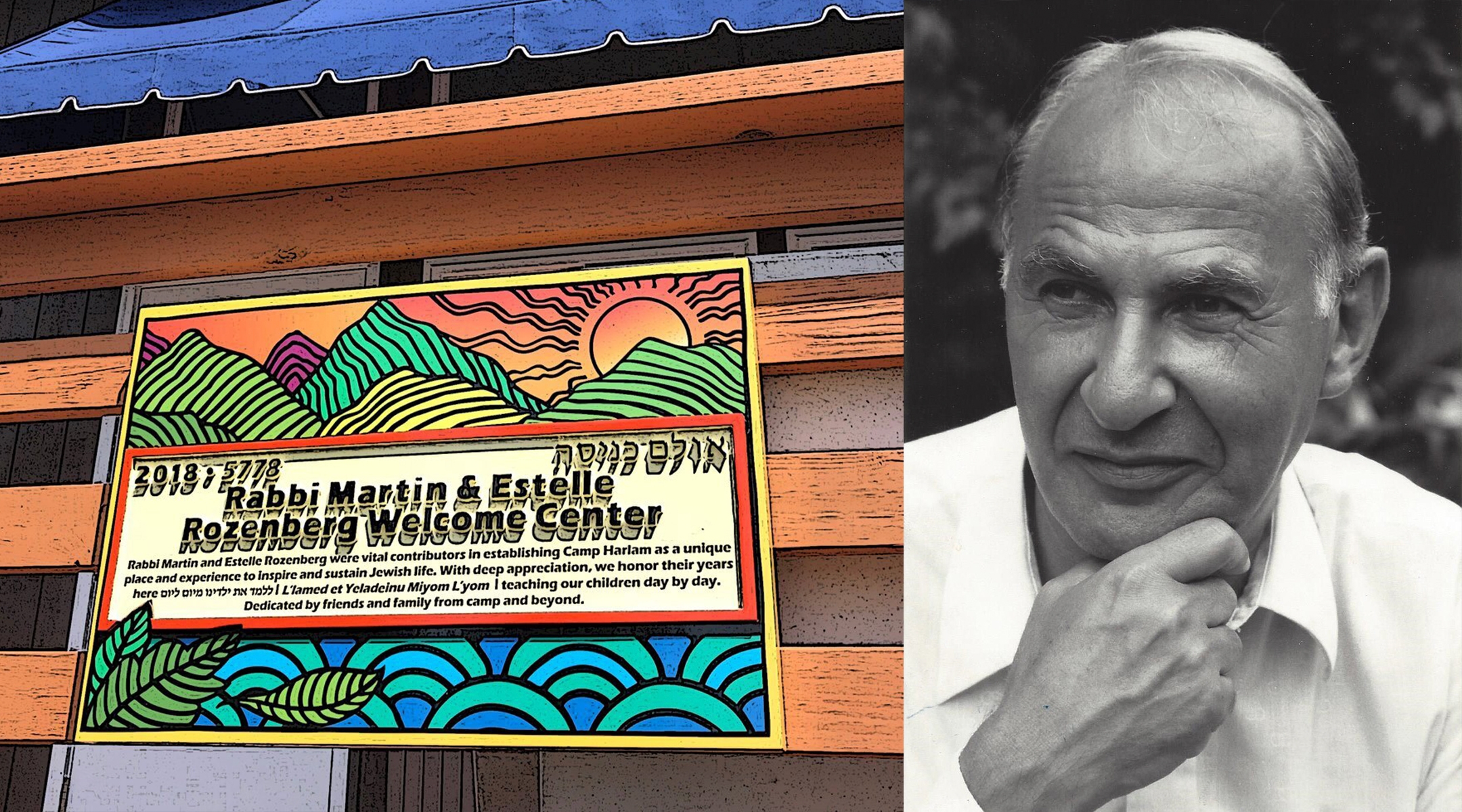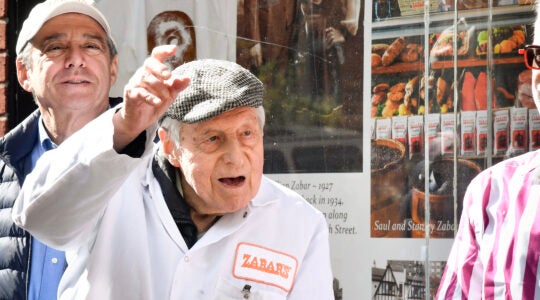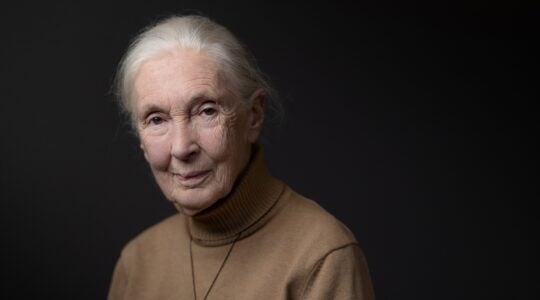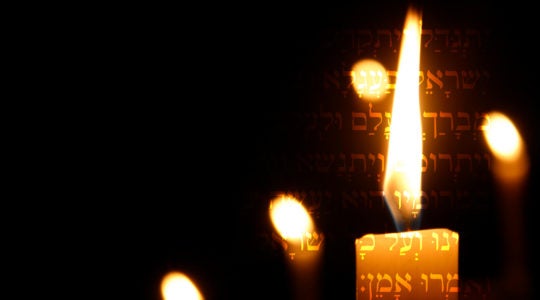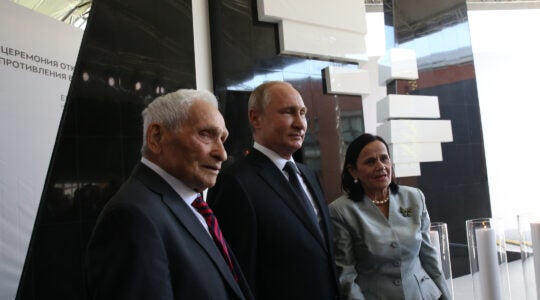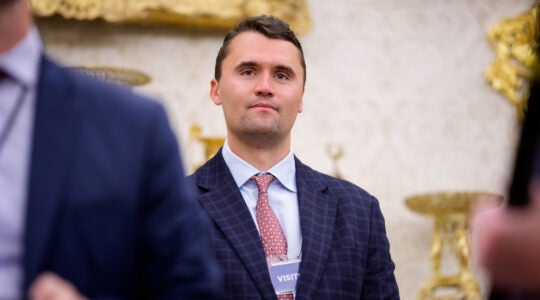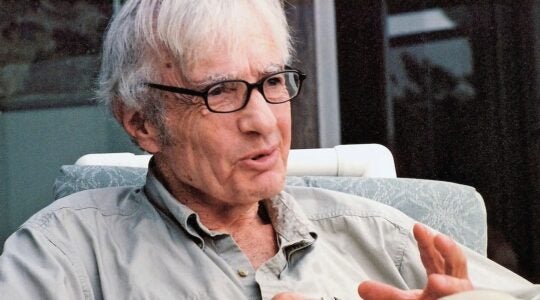(JTA) — Martin S. Rozenberg, a rabbi and Bible scholar who convinced one of his synagogue benefactors to finance the creation of the Reform movement’s Camp Harlam in Kunkletown, Pennsylvania, died Nov. 30 at his home in Cedar Grove, New Jersey. He was 95.
In 1957, Joseph Harlam, a wealthy émigré from Germany, recruited Rozenberg as rabbi at Temple Beth Israel in Hazelton, Pennsylvania. In turn Rozenberg lobbied Harlam to create a summer camp to serve Jewish children in the mid-Atlantic region. With Harlam’s backing they found and negotiated the purchase of a failing basketball camp that in 1958 would become The Joseph and Betty Harlam Camp. Now known as URJ Camp Harlam, it is one the largest and best-known of the 14 camps in the Union for Reform Judaism network.
Rozenberg went on to serve as the educational director at the camp in its first four years.
“He had already helped to recruit many of the campers that came for the first summer, and as the director of the educational program here, he applied his vision to make this a special, intentional and successfully immersive place for Jewish children to find themselves and each other,” Aaron Selkow, the executive director of URJ Camp Harlam, said at a ceremony in 2018 naming the camp’s welcome center in honor of Rozenberg and his wife Estelle.
In addition to his role as a pulpit rabbi — including six years at Temple Beth Israel and 33 years at The Community Synagogue in Port Washington, New York — Rozenberg served as a professor of Bible, Biblical Grammar and Aramaic at the Hebrew Union College-Jewish Institute of Religion in New York and as associate professor at Ancient Near East Civilizations at C.W. Post College of Long Island University.
He represented the Reform movement on the Bible Translation Committee for “Tanakh,” the modern edition of the complete Hebrew Bible published by the Jewish Publication Society in 1985, and co-wrote, with Bernard M. Zlotowitz, “The Book of Psalms, A New Translation and Commentary” (1999).
Rozenberg also took a hands-on approach to his Bible scholarship, participating in the first survey of digs at Masada, the 2,050-year-old palace on the edge of the Judean desert, and serving as site supervisor at excavations conducted at the southern end of the Temple Mount in Jerusalem. He served a term as secretary/treasurer of the Israel Exploration Society.
“Martin Rozenberg did not only study and teach Torah,” Rabbi Jan Katzew, associate professor of Jewish Thought and Education at HUC-JIR in Cincinnati, said in remarks at Rozenberg’s funeral. “He also loved and lived Torah.”
Martin Rozenberg was born in Lithuania; he was 11 when his family emigrated to the United States from Latvia in March 1940. He received his B.A. from New York University in 1951, followed by bachelor’s, master’s and doctor of divinity degrees from HUC-JIR in New York. He was ordained in 1955, and earned his Ph.D in the department of Oriental Studies at the University of Pennsylvania in 1963.
He served for nine years as the national chairman of the Commission on Education of the Union of American Hebrew Congregations (later renamed the Union for Reform Judaism) and as the chairman of both the education and adult education committees of the Central Conference of American Rabbis. He was the founder, in 1984, and president of the Liberal Jewish Day School of Long Island.
In his euology for Rozenberg, Katzew quoted Rabbi David Ellenson, the longtime president of HUC-JIR who died unexpectedly last Thursday at 76. Rozenberg “modeled for me what a rabbi should be,” said Ellenson, according to Katzew.
Rozenberg is survived by his daughters Karen Rozenberg Berman and Sandra Rozenberg Sadove, seven grandchildren and six great-grandchildren, and a sister, Lee Greenberg. His wife, Estelle, died in 2019, and a son, Rabbi Robert Rozenberg, died in 2020.
JTA has documented Jewish history in real-time for over a century. Keep our journalism strong by joining us in supporting independent, award-winning reporting.
